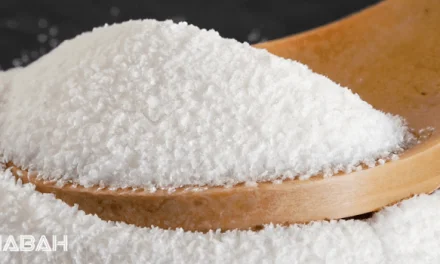Enzymes are proteins that act as catalysts for chemical reactions in living organisms. They play a major role in processes such as digestion and fermentation. In food production, purified enzymes are widely used to make cheese, baked goods, beverages, and other products.
Common enzymes used in food manufacturing include:
- Rennet – for cheese making
- Lipase – for cheese, dairy, and baked goods
- Catalase – for dairy and meat processing
- Pepsin – for gelatin, dairy, bakery
However, some of these enzymes are animals derived enzymes, which raises questions around their permissibility in Islamic dietary laws. Halal foods must comply with Quranic principles and hadiths about permitted and prohibited ingredients. As stated in the Quran:
“Forbidden to you (for food) are: dead meat, blood, the flesh of swine…” (Quran 5:3)
There is debate among Islamic scholars whether enzymes from animals are halal or haram:
- Some argue that enzymes are proteins, not flesh, and therefore permissible.
- Others contend that the origin matters, and animal enzymes should be avoided.
This article will examine the evidence and perspectives on both sides of the issue. Is the chemical transformation of enzymes enough to make them halal? Or does doubt about their origin make them better to avoid for observant Muslims? There is no consensus among Muslim religious authorities.
Background on Halal Foods
Halal dietary laws derive from Islamic teachings in the Quran and hadith sayings and traditions of the Prophet Muhammad (pbuh). Some key principles include:
- All foods are halal except what is specifically prohibited
- Prohibited foods include:
- Pork and pork products
- Blood and blood by-products
- Meat from animals that were not slaughtered correctly
- Permitted foods must be “wholesome and clean” (Quran 2:168)
-
Meat must come from halal animals slaughtered by either Muslims or People of the Book:
“The food of the People of the Book is lawful unto you and yours is lawful unto them.” (Quran 5:5)
-
Fish and seafood are permitted
- Alcoholic drinks are prohibited
To be certified halal:
- The source animal must have been fed a natural diet
- Slaughtering must follow zabiha rituals like invoking Allah’s name
The general ruling is that enzymes sourced from halal animals and plants are permissible. But the debate centers around enzymes derived from animals not slaughtered properly according to Islamic rites. Do these enzyme remain halal or not?
Arguments That Animal Enzymes are Halal
There are several reasons put forth by Islamic scholars for why enzymes derived from animals should be considered halal, even if the source is not halal or zabiha:
Enzymes are Chemically Transformed
- Enzymes undergo major chemical processing and transformation during extraction and purification.
- This makes them fundamentally different from the original animal source.
-
One scholar notes:
“The chemical change renders the final enzyme product as pure protein that cannot be considered meat or flesh.”
Enzymes are Proteins, Not Flesh
- Enzymes are protein molecules, not the flesh or tissues of animals.
- Consumption of enzymes is different from eating meat or cells.
-
Ibn al-Qayyim said non-flesh parts of prohibited animals are purified and made permissible:
“The basic principle is that substances extracted from both [lawful and unlawful] animals are pure.”
Origin is Nullified
- The enzyme undergoes such transformation that its origin is nullified.
- This overrides any consideration about whether the animal was properly slaughtered.
-
Scholar notes:
“The origin of the enzyme is of no consequence in the final product.”
So from this viewpoint, enzymes from even prohibited animals like pigs can be purified and made halal through chemical processing.
Arguments That Animal Enzymes are Haram
On the other side, some Islamic scholars contend that enzymes derived from non-halal animals should be considered haram. Reasons include:
Origin Matters
- The source and origin of the enzyme matters, regardless of chemical processing.
-
Ibn Uthaymeen said:
“The ruling depends on where the enzyme came from. If it came from an impure source, it remains impure.”
-
Enzymes are essentially just purified and concentrated from animal sources.
Doubtful Sources
- It is difficult to verify if the animals were slaughtered Islamically.
- When in doubt, better to avoid enzymes from animals like pigs.
-
Prudent to avoid doubtful things according to hadith:
“Leave that which makes you doubt for that which does not make you doubt.”
Not Transformed Enough
- The chemical change may not be substantial enough to purify the enzyme.
- Parts like fat, hide, urine etc of haram animals remain haram.
- Enzymes are not fundamentally different from their animal source.
So from this perspective, enzymes from halal animals like cows may be acceptable, but those from pigs and unknown sources are better avoided.
Perspectives from Islamic Institutions
Islamic scholarly bodies have issued varying rulings and guidelines when it comes to animal-derived enzymes:
Permissible with Conditions
-
The International Food and Nutrition Council of America (IFANCA):
Allows enzymes from slaughtered halal animals like cows if no contamination.
-
The Islamic Organization for Medical Sciences (IOMS):
Allows microbial enzymes as well as enzymes from dhabiha-slaughtered cattle.
Impermissible
-
The South African National Halal Authority (SANHA):
Considers enzymes from pigs and cattle not slaughtered Islamically as haram.
-
Indonesian Council of Ulama (MUI):
Has banned use of pig-derived enzymes deeming them najis (impure).
Middle Ground
-
The European Fatwa Council:
Rules enzymes can be halal if from dhabiha animals or microbes, but haram if from pigs and dogs.
So there is variation in guidance and fatwas from Islamic bodies reflecting the broader debate on this issue.
Here is a draft section in markdown format covering halal enzyme options:
Options for Halal Enzymes
For Muslims wishing to avoid the use of enzymes from questionable sources, there are some alternatives:
Microbial Enzymes
- Enzymes derived from microbial sources like bacteria, yeast or fungi.
- Considered halal as they undergo similar extraction process.
- Products will be labeled “microbial enzymes”.
Plant-Based Enzymes
- Enzymes derived from plants like papaya, fig, kiwi fruit.
- Also went through chemical processing.
- Labeled as “plant enzymes”.
Zabiha Animal Enzymes
- Enzymes taken from halal animals like cattle slaughtered by Islamic rites.
- Should be labeled as “halal-certified enzymes”.
- But traceability can still be an issue.
| Source | Halal Status |
|---|---|
| Microbial | Halal |
| Plant-based | Halal |
| Zabiha animals | Most acceptable |
| Non-zabiha animals | Questionable |
So Muslims have options to proactively select halal enzyme sources, especially microbial and plant-based ones. But caution is still advised.
Are Enzymes Halal – Frequently Asked Questions
What are enzymes used in the food industry?
Enzymes used in the food industry are protein molecules that act as catalysts in various biochemical reactions. They are used to enhance food production processes and improve the quality of food products.
What is the halal status of enzymes used in food?
The halal status of enzymes used in food depends on their sources and the method of production. Enzymes derived from halal sources, such as plants or microbial sources, are generally considered halal. However, enzymes derived from animal sources, like animal rennet, may be considered haram (forbidden) unless they are produced through a halal-certified process.
Do halal food products contain enzymes?
Yes, enzymes in halal food, as long as the enzymes used are halal-certified or derived from halal supply chain. The use of halal-certified enzymes ensures that the food production process adheres to halal standards.
How are enzymes used in halal food production?
Enzymes are used in halal food production to enhance various processes, such as fermentation, cheese-making, and dough rising. These enzymes play a crucial role in food production by breaking down complex molecules and facilitating biochemical reactions.
Are animal enzymes halal?
Enzymes derived from animal sources, such as animal rennet, are generally not considered halal unless they are produced through a halal-certified process. It is important to ensure that the enzymes used in food production adhere to halal standards to maintain the halal status of the final product.
Are microbial enzymes halal?
Yes, microbial enzymes, which are derived from microorganisms like bacteria or fungi, are generally considered to be halal. They are commonly used in food production as an alternative to animal-derived enzymes.
How does the halal certification ensure the halal status of enzymes used in food?
Halal certification provides assurance that the enzymes used in food production adhere to halal standards. It involves a thorough inspection of the production process, ensuring that the food enzymes are derived from halal products and produced in accordance with halal guidelines.
are cheese enzymes halal?
Cheese products manufactured with microbial/bacterial cultures are considered Halal
Conclusion
There are strong opinions on both sides of the debate around the halal status of enzymes derived from animals. The main arguments are:
Enzymes are halal
- Enzymes undergo chemical transformation
- They are proteins, not animal flesh
- Their origin is nullified
Enzymes are haram
- Origin of enzyme still matters
- Doubtful halal status of source animals
- Not transformed enough from animal product
Major Islamic institutions also provide varying guidance:
- Permissible with conditions
- Impermissible
- Middle ground rulings
There is no consensus among Muslim scholars on this issue. For observant Muslims, the best options are:
- Seek out microbial and plant-based enzyme sources
- Verify halal certifications when available
- Use discretion based on individual interpretation of halal laws
The debate will likely continue, but progress is being made on developing more enzymes from halal sources. This will give Muslim consumers confidence that their food choices meet Quranic guidelines.





